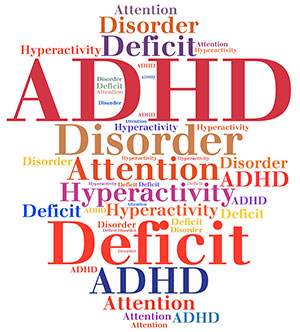Attention Deficit Hyperactivity Disorder (ADHD) and anxiety are two prevalent mental health conditions that often co-occur. Individuals with ADHD frequently experience heightened levels of anxiety, and vice versa. Managing these co-existing conditions requires a nuanced approach that addresses both the symptoms of ADHD and the challenges posed by anxiety. This article explores the interplay between ADHD and anxiety, and provides strategies for effective management.
Understanding ADHD and Anxiety
ADHD is characterized by persistent patterns of inattention, hyperactivity, and impulsivity. Symptoms can include difficulty focusing, restlessness, and problems organizing tasks. Anxiety, on the other hand, involves excessive worry, fear, or apprehension that can interfere with daily functioning. Symptoms of anxiety may include constant worry, muscle tension, and avoidance behaviors.
When ADHD and anxiety co-occur, the symptoms of one condition can exacerbate the other. For example, individuals with ADHD might experience anxiety due to difficulties in meeting deadlines or maintaining organization, which can heighten their sense of inadequacy or stress. Conversely, anxiety can amplify ADHD symptoms by increasing distractibility and restlessness.
Diagnosis and Assessment
Accurately diagnosing ADHD and anxiety involves a comprehensive evaluation by a mental health professional. This typically includes a detailed history of symptoms, behavioral assessments, and sometimes standardized questionnaires. It’s crucial for clinicians to differentiate between symptoms that are specific to ADHD and those that are indicative of anxiety to avoid misdiagnosis and ensure appropriate treatment.
Integrated Treatment Approaches
Managing ADHD and anxiety simultaneously requires an integrated treatment plan that addresses both conditions. Here are some key strategies:
Medication Management
Stimulant Medications: These are commonly prescribed for ADHD and can help improve focus and reduce impulsivity. However, they may sometimes exacerbate anxiety symptoms. It’s essential for a healthcare provider to monitor the effects of these medications and adjust dosages as needed.
Anxiolytics and Antidepressants: Medications specifically for anxiety, such as selective serotonin reuptake inhibitors (SSRIs), can be beneficial. These medications can help reduce anxiety without significantly impacting ADHD symptoms. It’s important to work with a healthcare provider to find the right balance.
Cognitive Behavioral Therapy (CBT)
CBT for ADHD: Focuses on developing organizational skills, time management, and strategies to improve executive function. Techniques may include setting up routines, breaking tasks into smaller steps, and using reminders.
CBT for Anxiety: Addresses negative thought patterns and teaches coping strategies for managing anxiety. Techniques might include relaxation exercises, cognitive restructuring, and exposure therapy.
Behavioral Interventions
ADHD-Specific Techniques: Implementing behavioral strategies such as positive reinforcement, structured environments, and clear expectations can help manage ADHD symptoms. Organizational tools, like planners and apps, can be useful.
Anxiety-Reducing Techniques: Techniques such as mindfulness, relaxation exercises, and stress management can help mitigate anxiety. Regular physical activity and proper sleep are also crucial in managing both ADHD and anxiety.
Lifestyle Adjustments
Routine and Structure: Establishing a consistent daily routine can help manage ADHD symptoms and reduce anxiety. Structure provides a sense of predictability and control, which can alleviate stress.
Healthy Habits: Maintaining a balanced diet, engaging in regular physical exercise, and ensuring adequate sleep are fundamental to overall mental health and can help manage both ADHD and anxiety symptoms.
Social Support
Family and Friends: Educating family members and friends about ADHD and anxiety can foster understanding and support. Support from loved ones can reduce feelings of isolation and provide practical help in managing daily tasks.
Support Groups: Joining support groups for individuals with ADHD and anxiety can offer valuable peer support and coping strategies. Sharing experiences with others who face similar challenges can be both validating and instructive.
Coping Strategies
Living with co-existing ADHD and anxiety requires ongoing management and self-care. Here are some practical coping strategies:
Mindfulness and Relaxation: Practices such as meditation, deep breathing exercises, and yoga can help manage anxiety and improve focus.
Time Management: Using tools like planners, reminders, and time-blocking techniques can help
symptoms and reduce the stress associated with disorganization.
Setting Realistic Goals: Breaking tasks into smaller, manageable goals can make them feel less overwhelming and more achievable.
Conclusion
Managing ADHD and anxiety simultaneously is a multifaceted process that involves addressing both conditions through medication, therapy, behavioral interventions, and lifestyle adjustments. By adopting a comprehensive treatment plan and utilizing effective coping strategies, individuals with ADHD and anxiety can improve their quality of life and achieve better overall mental health. Collaboration with healthcare providers, support from loved ones, and self-care are key components in navigating the challenges of co-existing conditions and finding a balanced approach to managing both ADHD and anxiety.

Nice post. I learn something new and challenging on websites I
stumbleupon on a daily basis. It’s always exciting
to read content from other writers and use a little something from other sites.